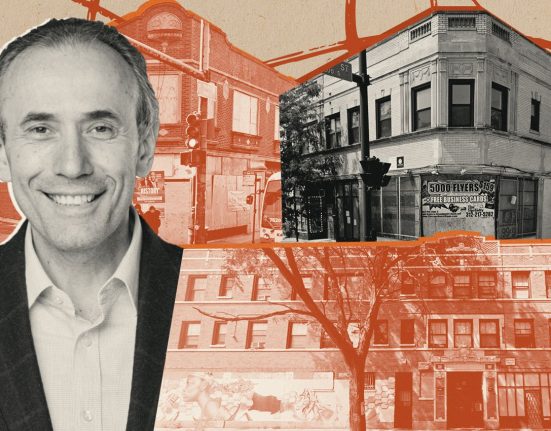When you take out student loans, you’re responsible for paying your outstanding balance. But what happens to student loans when…
When you take out student loans, you’re responsible for paying your outstanding balance. But what happens to student loans when you die? Do they die with you or live on? It depends on the type of student loans you have. Federal student loans from the U.S. Department of Education are discharged upon the borrower’s death. (The estate must submit appropriate documentation, like a death certificate.) Private student loans may be discharged when the borrower passes away, but it’s not as clear-cut.
[Read: Best Student Loan Refinance Lenders.]
What Happens to Private Student Loans When You Die?
The answer largely depends on your lender’s policy and your loan agreement.
“When it comes to private student loans, what happens after a borrower passes away really depends on the lender and the specific terms of the private student loan — and unfortunately, there’s no one-size-fits-all answer,” says Becca Craig, certified student loan professional and certified financial planner at Focus Partners Wealth. “Some lenders, like Sallie Mae, might offer a death discharge, meaning the loan is forgiven if the borrower passes away. But that’s not guaranteed.” Craig notes that a death discharge would be part of the loan agreement, not required by law.
Private student loan lenders don’t have a legal obligation to discharge loans upon a borrower’s death, according to the Consumer Financial Protection Bureau. The lender may try to recover the funds through the borrower’s estate after their death.
“So if there are assets like a home or bank accounts, the lender could try to collect what is owed through a probate process. But if the estate doesn’t have the money, and no one else is on the hook legally, like a cosigner, the lender may end up writing off the debt,” says Craig.
[READ: Fastest Co-Signer Release Student Loans]
Do Cosigners Have to Pay for Private Student Loans After the Borrower Dies?
A large majority of private student loans have a cosigner attached to them. For example, PNC Bank states that over 90% of its private loan borrowers have a cosigner. From a legal standpoint, cosigners share the responsibility of repayment for the private student loans. But what happens to student loans when you die and have a cosigner?
“In some cases the cosigner’s repayment obligation is canceled when the borrower dies and sometimes not. You need to read the fine print when borrowing the loan,” says Mark Kantrowitz, author of “How to Appeal for More College Financial Aid.”
Your cosigner could be at risk after you pass away. However, it depends on when the private loans were taken out. The Economic Growth, Regulatory Relief, and Consumer Protection Act amended Section 601 of the Truth in Lending Act and now releases the cosigner’s obligation upon a borrower’s death. But only private student loans taken out after Nov. 20, 2018, are eligible for this benefit, according to the National Consumer Law Center.
It’s also important to note that if the cosigner of the loan passes away, the primary borrower/student is still responsible for repayment.
Does the Spouse Have to Pay for Private Student Loans After the Borrower Dies?
If you’re married and have private loans, what happens to student loans when you die depends on a couple of factors. First, a spouse who cosigned the private loans may be responsible for repayment upon the primary borrower’s death.
A spouse who didn’t cosign private student loans that were taken out before marriage should be in the clear and not held responsible for the outstanding balance.
But if private student loans were taken out while married, spouses are responsible for payment in some circumstances — even if they didn’t cosign the private student loans.
“In community property states like California or Texas, a surviving spouse might be held liable even if they didn’t cosign,” says Craig.
Are Discharged Private Loans Taxed?
If private student loans get discharged when the borrower passes away, currently the forgiven amount is not taxable thanks to the Tax Cuts and Jobs Act. However, this provision is expiring at the end of 2025. Currently, there are talks of extending this tax policy specifically for student loans discharged in death and disability.
Private Student Loan Lender Death Discharge Policies
Here’s an overview of some private student loan lender death discharge policies. Many of the major private student loan lenders offer a death discharge benefit. But there is a range of lenders on the market, so you want to check your loan agreement to verify. For families dealing with a lender without a death discharge benefit, “contact the lender’s ombudsman and ask for a compassionate review, especially if the borrower was a member of the U.S. armed forces or a first responder,” says Kantrowitz.
[Read: Best Student Loans for Bad Credit. ]
What to Do After a Private Student Loan Borrower Dies
After a private student loan borrower dies, the family should obtain a valid death certificate as proof. Once that is available, it’s important to inform the lender that the primary borrower has passed away.
Ask the lender if it provides a death discharge benefit. If it does, request written confirmation for your personal records. If there isn’t a death discharge and there is a cosigner or spouse who’s potentially responsible, ask about next steps and how to proceed with repayment.
3 Ways to Protect Cosigners and Family
If you’re a private student loan borrower, the last thing you want to do is burden your family with your remaining debt should the unthinkable happen. Here are three ways to protect your cosigners and family.
1. Apply for cosigner release. See if your private lender offers cosigner release. Typically, you must meet the lender’s underwriting criteria for primary borrowers. Additionally, you must make a minimum number of payments before you apply and get approved.
2. Refinance student loans. If your lender doesn’t offer cosigner release, there’s another option. You can refinance your student loans, which creates another loan and pays off your old one. For this to work, you need to meet the refinancing lender’s eligibility requirements.
3. Look into life insurance. Lastly, you may consider other financial products to help cover any risks. “Get a term life insurance policy on the student in an amount equal to the amount borrowed and with a term equal to the repayment term of the loan. Such life insurance policies will be inexpensive, since the student is young and presumably healthy,” says Kantrowitz.
More from U.S. News
Parent PLUS Loans vs. Private Student Loans: Compare Your Options
What Student Loan Protections Can We Lose if the CFPB Goes Away?
Parent PLUS Student Loan Forgiveness: What You Should Know
Do Private Student Loans Go Away When You Die? The Answer Is More Complicated Than You Think originally appeared on usnews.com







